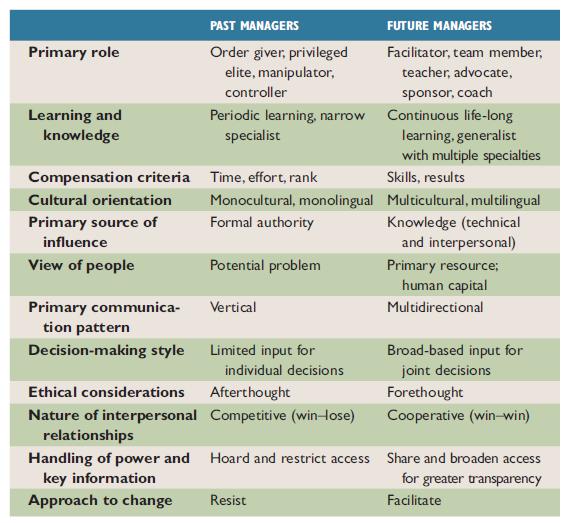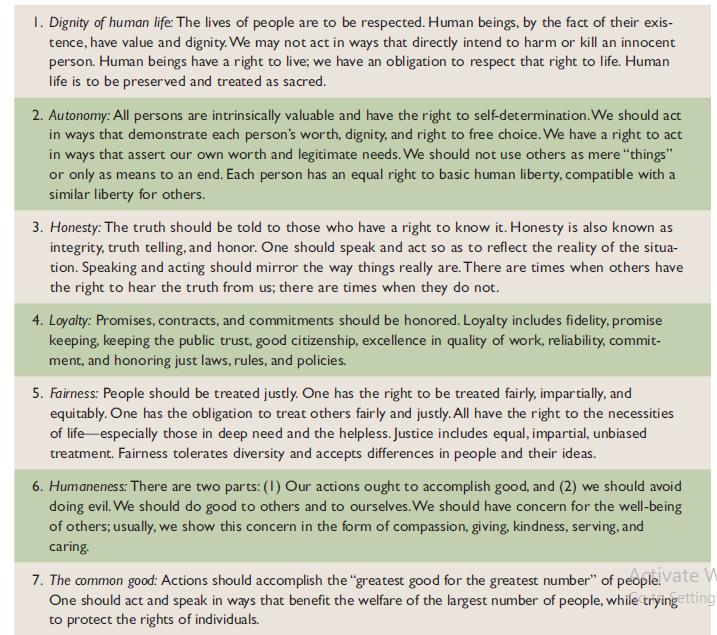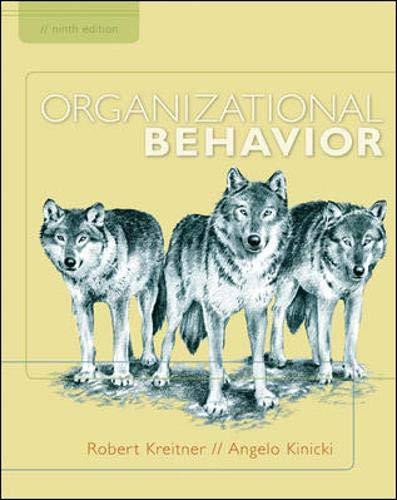Southern Californian Scott Robinson had quite a rsum when he returned from studying in France last Christmas.
Question:
Southern Californian Scott Robinson had quite a résumé when he returned from studying in France last Christmas.
The 26-year-old had an undergraduate degree from Bucknell University, two MBAs, and internships at two of Europe’s most respected corporations, Nestlé
and Unilever Group. Yet, when it came time to take the next career step, he chose a job as a stock handler in a surf shop in Cardiff-by-the-Sea, California. Actually, he begged for the job. What gives? Simple, he says: “I wanted to work for a company that’s driven by values.”
The company is Patagonia Inc., a Ventura, California, seller of outdoor clothing and equipment that has a reputation as an enlightened employer and champion of the environment. On his return from France, Robinson read Let My People Go Surfing, a memoir and manifesto of sustainable business practices by Patagonia founder and chairman Yvon Chouinard. The company’s goal is as simple as it is challenging: to produce the highestquality products while doing the least possible harm to the environment.
That mission is a daily inspiration for Patagonia’s 1,275 employees, from Chouinard to the flip-flopwearing guy who answers the phone in the headquarters lobby. Most corporate mission statements are empty platitudes. This one guides every decision.
And it’s the centerpiece of a set of management practices that have helped Patagonia grow at a healthy rate and retain what is arguably the best reputation in its industry even while it faces increasing competition from much larger companies.
Patagonia’s philosophy is the handiwork of Chouinard, a gruff yet funny outdoorsman who, despite his 67 years and arthritic hands, hasn’t slowed down much. He helped pioneer modern rock-climbing techniques in his youth and now prowls the globe in search of outdoor adventures and product ideas. That is, when he’s not shaking up his 33-year-old company, helping to preserve the environment, or advocating radical changes in the way Americans do business. “Most people want to do good things, but don’t. At Patagonia, it’s an essential part of your life,” says Chouinard.
At a time when companies must adapt to an everquickening competitive pace, a highly motivated workforce can provide a crucial edge. Until now, there have been two primary approaches to keeping employees at the top of their game. At the high-stress workplace, bosses rule by fear, kicking ass, and taking names. At feel-good places, managers try to motivate employees with kind words and generous benefits. Neither approach is optimal. In a recent Gallup poll, only one-third of Americans considered themselves passionate about their jobs.
A few companies have found a better way. “There are companies that stress continuous improvement and being way better than the competition but also make people feel comfortable,” says Stanford University professor Jeffrey Pfeffer. These companies range from publicly traded giants such as FedEx and Southwest Airlines to a small fry like Patagonia. They are meritocracies with ambitious goals that trust their employees to do the right thing—and give them the tools and time they need to do it.
Patagonia, with 39 stores in seven countries, works hard at achieving that delicate balance. It offers an on-site day-care center at its headquarters and full medical benefits to all employees, including parttimers.
When the surf ’s up, Chouinard himself urges people to hit the beach. At the same time, the company demands hard work, creativity, collaboration, and results.
Management isn’t shy about axing employees who aren’t up to snuff. . . .
Patagonia enjoys an unrivaled reputation among outdoor aficionados, and its green philosophy is gaining broader appeal as more Americans embrace sustainable consumption. Chouinard’s goal for Patagonia’s own sustainability: “I look at this company as an experiment to see if we can run it so it’s here 100 years from now and always makes the best-quality stuff,”
he says. That means keeping growth relatively slow but steady, at about 5% per year. Revenues were up a healthy 7% last year, to $260 million. Operating margins typically come in at the high end of the 12% to 15% industry average, according to people who have seen the numbers, and that’s after it donates 1%
of revenues to environmental groups. Patagonia, which declined to comment on its financials, is owned by a Chouinard family trust. . . .
Few Patagonians are in it just for the money. The company recently raised salaries to adjust for the cost of living, and everybody gets an annual bonus based on profits, but, overall, Patagonia pays at, or just slightly above, the market rate. However, the most significant rewards aren’t monetary. One popular perk is a program that allows employees to take off up to two months at full pay and work for environmental groups. Lisa Myers, who works on the company’s giving programs, tracked wolves in Yellowstone National Park during her sabbatical. The company also pays 50%
of her college expenses as she pursues a wildlife biology degree. “It’s easy to go to work when you get paid to do what you love to do,” she says. Patagonia’s culture makes it a magnet for talented people. The company receives an average of 900 résumés for every job opening, so it can afford to be picky.
. . .
Can others capture some of Patagonia’s magic? Most companies—especially ones with demanding public shareholders—simply can’t let employees take a surfing break. They can, however, foster creativity and provide a sense of purpose. Perhaps the most valuable and easily applied lesson from Patagonia’s experience is this: To think outside the box, sometimes you need to get out of the cubicle.
Questions for Discussion
1. What role, if any, does McGregor’s Theory Y play at Patagonia? Explain.
2. How does Patagonia build human and social capital?
3. How does this case bring the profile of the 21stcentury manager (Table 1–4) to life? Explain.
Table 1-4
 4. Which of the seven moral principles in Table 1–5 appear to be in force at Patagonia? Explain.
4. Which of the seven moral principles in Table 1–5 appear to be in force at Patagonia? Explain.
Table 1-5
 5. What appeals to you (or does not appeal to you)
5. What appeals to you (or does not appeal to you)
about working at Patagonia? Explain.
Step by Step Answer:






